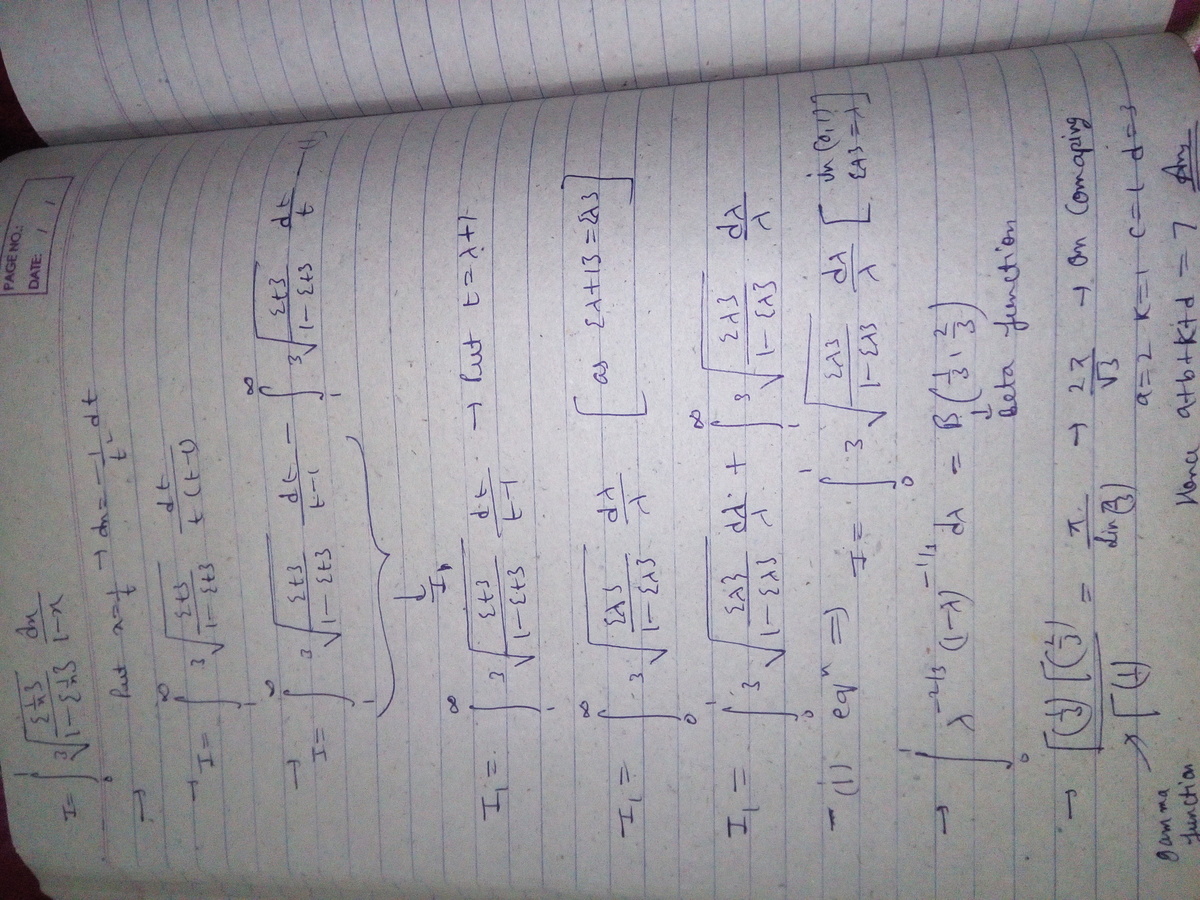An integral with fractional part function
∫ 0 1 3 1 − { x 1 } { x 1 } 1 − x d x
If the closed form of the value of the integral above can be expressed as c d a π k , where a and c are coprime and d is square-free, find a + k + c + d .
Also, is it possible to find the following in a closed form?
∫ 0 1 n 1 − { x 1 } { x 1 } 1 − x d x
The answer is 7.
This section requires Javascript.
You are seeing this because something didn't load right. We suggest you, (a) try
refreshing the page, (b) enabling javascript if it is disabled on your browser and,
finally, (c)
loading the
non-javascript version of this page
. We're sorry about the hassle.
2 solutions
In general ∫ 0 1 f ( { x 1 } ) 1 − x d x = ∫ 0 1 f ( x ) x d x and ∫ 0 1 f ( { x 1 } ) 1 + x d x = ∫ 0 1 f ( x ) 1 + x d x .
Tiny error: it should be t = x - k in line 1, sorry for nitpicking. Also, the eventual answer is 7, not 3 :p
Nice solution! ⌣ ¨
brilliant !!!!!!!!!!!!
This is the way to do it. Note that the sum telescopes leaving the integral if anybody didn't see how to get to line 2.
Can you p[lease explain the first part of the solution

I'll take the general case, the integral is : I n = k = 1 ∑ ∞ ∫ k k + 1 x ( x − 1 ) 1 n 1 + k − x x − k d x = t = x − k k = 1 ∑ ∞ ∫ 0 1 n 1 − t t ( t + k − 1 1 − t + k 1 ) d t Now, we interchange the sum integral (this is allowed by MCT since all summands are positive and the limit is integrable) to get : I n = ∫ 0 1 t n 1 − 1 ( 1 − t ) n − 1 d t = B ( n 1 , 1 − n 1 ) Where B is the Beta function , now use the Beta-Gamma relation and the reflection formula to get : I n = Γ ( n 1 ) Γ ( 1 − n 1 ) = π csc ( n π ) In this case, n = 3 gives us 3 2 π , then the answer is 7 .
Remark : There is more elegant methods to prove the reflection formula using real and/or complex analysis, try to prove it alone.